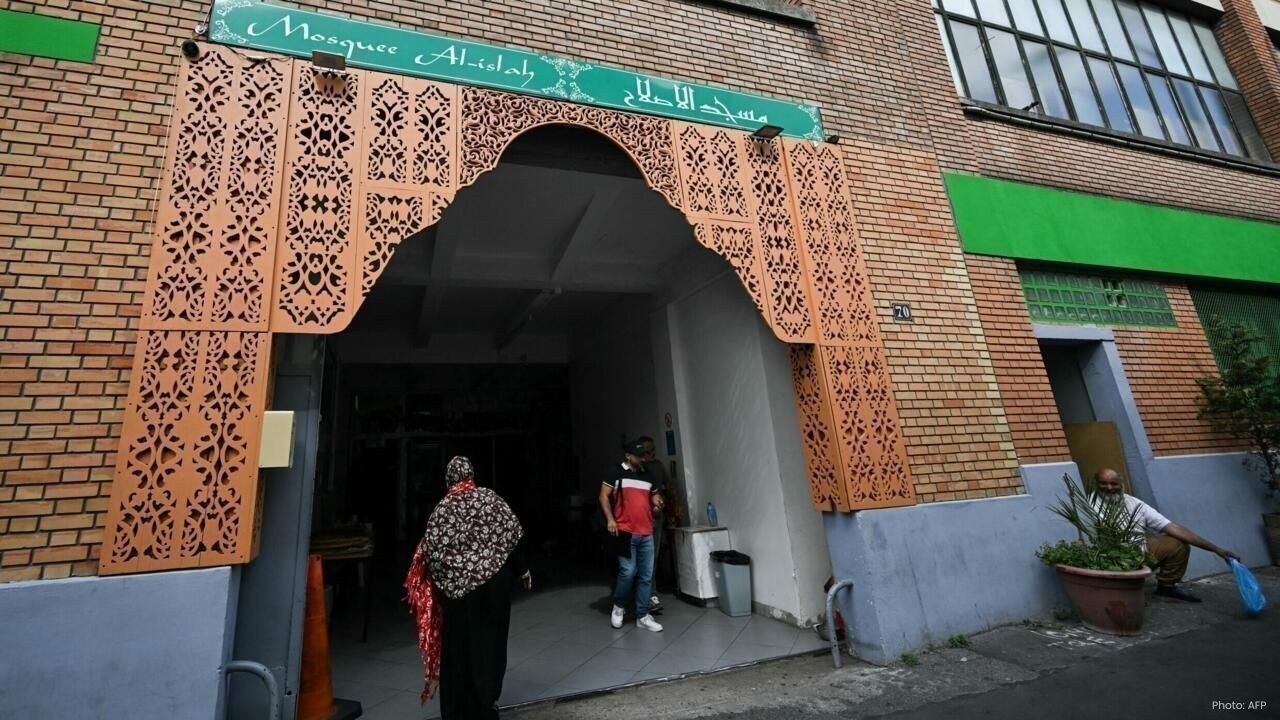
Post by : Kanchan Chandel
In the vibrant landscape of Indian web series, "Panchayat" has carved a niche for itself with its authentic portrayal of rural life and endearing characters. As the third season looms on the horizon, fans eagerly anticipate the next chapter in the life of Sachiv Ji and the quirky villagers of Phulera. Before diving into new episodes, let's take a nostalgic trip down memory lane and revisit the highlights of "Panchayat" Season 1.
"Panchayat" opens with Abhishek Tripathi, portrayed by Jitendra Kumar, stepping into the rustic setting of Phulera village. Abhishek, a city-bred young man, finds himself appointed as the Gram Panchayat Secretary, or Sachiv Ji. Initially reluctant and uncomfortable in his new role, he quickly learns that village life is a far cry from his urban upbringing. Despite his initial disdain, Abhishek forms unexpected friendships with the village leaders: Pradhan Ji (Raghubir Yadav), Up-Pradhan Prahlad (Faisal Malik), and office boy Vikas (Chandan Roy). Neena Gupta as Manju Devi, the real Pradhan, and Saanvikaa as Rinki, Pradhan Ji's daughter, add depth and warmth to the storyline.
Season 1 is a delightful blend of humor, heartwarming moments, and social commentary. Abhishek’s journey of adjusting to village life is filled with instances that are both amusing and insightful. One of the standout moments is when a groom from another village demands a chair with wheels as a mark of respect, showcasing the unique customs and traditions of rural India. Another unforgettable incident involves a slogan painted on the village walls, "Do Bachche Hain Meethi Kheer, Usse Zyada Bawaseer," which stirs up a storm among the villagers.
Throughout the season, Abhishek’s interactions with the villagers reveal the simplicity and profundity of rural life. Whether it's accepting a lauki (bottle gourd) from Pradhan Ji or balancing his job with studying for the CAT exams, Abhishek’s journey is one of growth, acceptance, and deepening connections.
Among the ten episodes, "Computer Nahi Monitor" stands out with an IMDb rating of 8.9. This episode follows the comedic chaos that ensues when a monitor is stolen from the Panchayat office after a night of drinking. The episode perfectly captures the show's blend of humor and heart, making it a fan favorite.
"Panchayat" isn’t just about laughter; it also offers valuable life lessons. One of the most touching moments is when Abhishek bonds with Pradhan Ji over drinks, and Vikas gives him practical advice about drinking beer in the village: “Pehla beer thoda teji se ghatkiyega, varna kya hota hai jab tak dusri ka number aata hai, garam ho jaati hai.”
The season culminates in a poignant climax where Manju Devi, played by Neena Gupta, decides to assert her role as Pradhan by hoisting the flag on Republic Day. With Abhishek’s help, she learns the National Anthem, signifying her commitment to her position and her village.
The most memorable dialogue of the season encapsulates the essence of "Panchayat." When Pradhan Ji tells Abhishek, “Ye jo tanki hai naa, iske upar chad kar aapko gaon itna sundar lagega ki aapko gaon se pyaar ho jaayega,” it beautifully sums up Abhishek’s journey from reluctance to affection for the village.
As fans await the release of the third season, these highlights from Season 1 serve as a delightful reminder of why "Panchayat" has captured hearts. Its genuine portrayal of village life, combined with stellar performances and relatable storytelling, makes it a standout series in the world of Indian web content.
This article has been brought to you by DXB News Network. The views expressed here are based on the content of "Panchayat" and are intended for entertainment and informational purposes only. Enjoy watching!
In the colorful tapestry of Indian web series, "Panchayat" stands out for its realistic depiction of rural life and its unforgettable characters. The show is set in the fictional village of Phulera, a quintessential North Indian village that perfectly captures the essence of rural India. The dusty roads, the modest houses, and the lush fields create a picturesque setting that immediately draws viewers into its world. This setting isn't just a backdrop; it plays a crucial role in shaping the narrative and the characters' lives.

The story begins with Abhishek Kumar, affectionately known as Sachiv Ji, portrayed by the talented Jitendra Kumar. Abhishek is an engineering graduate who reluctantly takes up the job of a Panchayat secretary in Phulera due to a lack of better job opportunities. His arrival in the village marks the start of his journey from a city-dweller to someone who begins to understand and appreciate village life. His character is relatable and embodies the struggles of many young Indians who are caught between their aspirations and reality.
Brij Bhushan Dubey, played by the seasoned actor Raghubir Yadav, is the elected head of the village Panchayat but is often overshadowed by his wife, the actual Pradhan. Pradhan Ji's character is a delightful mix of wisdom and humor. He serves as a guide and mentor to Abhishek, helping him navigate the complexities of rural administration. His quirky yet profound observations on life in the village add depth to his character and the overall narrative.
Neena Gupta brilliantly portrays Manju Devi, the official Pradhan of Phulera. Despite holding the position, she allows her husband to perform most of the duties. Her character represents the traditional Indian woman who, despite her authority, remains in the background. However, as the season progresses, we see her evolving, particularly in the climax when she decides to hoist the national flag on Republic Day, symbolizing her acceptance of her role and responsibilities.
Faisal Malik's character, Prahlad Pandey, is the deputy Pradhan and a loyal friend to Brij Bhushan Dubey. He is often seen supporting the decisions of the Pradhan and providing comic relief with his straightforward and sometimes naive take on village politics. His interactions with Abhishek and Pradhan Ji are some of the most humorous and heartwarming moments of the series.
Chandan Roy plays Vikas, the enthusiastic office assistant who is always eager to help Abhishek but often ends up complicating things. His loyalty and innocence make him a lovable character. Vikas is the bridge between Abhishek and the villagers, helping him understand the local customs and ways of life. His genuine advice and humorous antics add a layer of warmth to the show.
Saanvikaa plays Rinki, the Pradhan’s daughter. Her character, though not heavily featured in the first season, hints at a potential love interest for Abhishek. Rinki’s presence brings a soft, romantic undertone to the otherwise political and administrative storyline. Her character is expected to develop further in the coming seasons, adding more dimensions to the narrative.
The village of Phulera is not just a setting but a character in itself. It is alive with vibrant local traditions, quirky residents, and the everyday hustle of rural life. From the community gatherings to the petty disputes, every aspect of village life is depicted with authenticity and respect. The interactions between the villagers and the main characters highlight the sense of community and the deep-rooted cultural values that define rural India.
In "Panchayat," every character, from the main protagonists to the minor villagers, contributes to the rich tapestry of the story. Their interactions, struggles, and growth make "Panchayat" a heartwarming and engaging portrayal of life in a small Indian village. As we await the next season, these characters and their stories remind us of the simplicity, warmth, and challenges of rural life, making us appreciate the essence of community and connection.
"Panchayat" Season 1 is a treasure trove of memorable moments that capture the essence of rural India, blending humor, warmth, and insightful commentary on village life. Let's delve deeper into some of the standout episodes and scenes that made the first season so special.
One of the most unforgettable episodes revolves around the demand for a wheelchair by a groom from another village. This seemingly simple request becomes a significant point of contention, highlighting the intricate social customs and pride inherent in rural life. The groom insists on having a chair with wheels as a mark of respect, a demand that baffles and amuses the villagers and viewers alike. This episode brilliantly showcases the cultural nuances and the importance of honor in village traditions, all while providing plenty of laughs.
Another standout moment comes when Sachiv Ji and the Panchayat team decide to paint motivational slogans on the village walls. One slogan, in particular, "Do Bachche Hain Meethi Kheer, Usse Zyada Bawaseer!" causes an uproar among the villagers. The phrase, intended to promote family planning, humorously backfires and leads to a heated debate. This episode is a masterclass in combining comedy with social commentary, showing how well-intentioned government campaigns can sometimes be misinterpreted in rural contexts.
Throughout the season, the recurring gag of Pradhan Ji gifting Sachiv Ji a lauki (bottle gourd) is both funny and endearing. Each time Abhishek visits Pradhan Ji's house, he leaves with a lauki, symbolizing the simplicity and generosity of village life. This ongoing joke not only adds humor but also subtly reinforces the developing bond between Sachiv Ji and the villagers.
"Computer Nahi Monitor" is a gem of an episode that perfectly captures the show's blend of humor and heart. After a night of drinking, Sachiv Ji wakes up to find the Panchayat office's monitor stolen. The ensuing investigation is both hilarious and revealing, exposing the quirks and idiosyncrasies of village life. The episode's high IMDb rating is a testament to its clever writing and engaging storyline.
In a series filled with poignant moments, one that stands out is Vikas's practical advice on drinking beer in a village: “Pehla beer thoda teji se ghatkiyega, varna kya hota hai jab tak dusri ka number aata hai, garam ho jaati hai.” This scene, where Abhishek and Pradhan Ji bond over drinks, is a delightful mix of humor and camaraderie. It highlights the growing friendship between the characters and offers a glimpse into the relaxed, convivial side of village life.
The season finale is both powerful and moving, focusing on Manju Devi's decision to step up and hoist the flag on Republic Day. Throughout the season, Manju Devi, played by Neena Gupta, has been a background figure, overshadowed by her husband, who everyone calls Pradhan Ji. Inspired by Sachiv Ji's encouragement, she decides to embrace her role as the elected Pradhan. The scene where she learns the National Anthem with Abhishek's help is particularly touching, symbolizing empowerment and the importance of self-belief.
Perhaps the most iconic moment of the season is when Pradhan Ji advises Sachiv Ji to climb the village water tank, saying, “Ye jo tanki hai naa, iske upar chad kar aapko gaon itna sundar lagega ki aapko gaon se pyaar ho jaayega.” This line encapsulates the central theme of the series: finding beauty and meaning in the simple, unvarnished aspects of life. The scene where Abhishek climbs the tank and sees the village from a new perspective is a metaphor for his own journey towards acceptance and love for Phulera.
These memorable moments from "Panchayat" Season 1 not only entertain but also offer deep insights into the dynamics of village life. They highlight the show's unique ability to blend humor with heart, making it a standout in the world of Indian web series. As fans eagerly await the third season, these highlights serve as a reminder of why "Panchayat" has resonated so deeply with audiences.
One of the standout episodes from "Panchayat" Season 1 is Episode 5, titled "Computer Nahi Monitor." This episode, with its engaging plot and humorous undertones, is a fan favorite, earning an impressive IMDb rating of 8.9. It captures the essence of village life and the quirky challenges faced by Sachiv Ji in a way that's both entertaining and thought-provoking.
The episode begins with the usual hustle and bustle at the Panchayat office. Abhishek, or Sachiv Ji, finds himself in a rather embarrassing situation when a monitor goes missing from the office. This seemingly minor incident spirals into a comedic chaos, highlighting the bureaucratic inefficiencies and the unique dynamics of village administration.
After a night of drinking with Pradhan Ji, Up Pradhan Prahlad, and Vikas, Abhishek wakes up to discover that the office monitor has been stolen. The night before, in a rare moment of bonding, the group had shared drinks and stories, oblivious to the mishap that awaited them. The missing monitor not only puts Abhishek in a difficult spot but also sparks a series of humorous and frantic attempts to recover it.
The reactions of the villagers and the Panchayat members to the missing monitor add layers of humor and charm to the episode. Pradhan Ji's nonchalant attitude, Prahlad’s half-baked theories, and Vikas’s earnest yet naïve suggestions create a delightful mix of confusion and comedy. Each character's unique personality shines through as they grapple with the situation, making the episode a memorable experience.
As news of the stolen monitor spreads, the entire village becomes involved in the search. This involvement underscores the tight-knit community spirit of Phulera. From suspicious glances at outsiders to impromptu investigations, the villagers' collective effort to solve the mystery is both endearing and amusing. It’s a testament to how, in a small village, even a small incident can become a significant communal affair.
The resolution of the episode is as satisfying as it is unexpected. After much ado, the monitor is found in a rather anticlimactic manner, but not before the entire village has had a good laugh and a bit of an adventure. The incident wraps up with a mix of relief and hilarity, leaving Abhishek with yet another story to tell about his life in Phulera.
"Computer Nahi Monitor" brilliantly captures the essence of "Panchayat" – the blend of humor, heart, and a slice-of-life portrayal of rural India. The episode’s humor lies not just in the situation but in the characters' responses and the cultural nuances it brings out. It highlights the absurdity and simplicity of village life, making viewers both laugh and reflect on the unique challenges and joys of rural administration.
This episode stands out for its perfect balance of comedy and storytelling. It showcases the everyday struggles of Sachiv Ji while highlighting the camaraderie and community spirit of Phulera. The episode's ability to turn a mundane incident into an engaging narrative with emotional depth and humor is what makes it a top favorite among fans.
In summary, "Computer Nahi Monitor" is a gem of an episode that encapsulates the charm of "Panchayat." Its unique storyline, combined with memorable characters and genuine humor, makes it a must-watch, offering viewers a delightful glimpse into the quirky world of Phulera.
"Panchayat" Season 1 is much more than just a comedy series; it's a heartfelt exploration of life's simple yet profound lessons, woven through the relationships of its characters. Let's delve deeper into the life lessons and relationships that define this beloved show.
Abhishek Kumar, known as Sachiv Ji, arrives in Phulera with a sense of reluctance and discontent. Used to the hustle and bustle of city life, he initially struggles to adapt to the slower pace and unfamiliar customs of the village. However, through his journey, the show teaches us an important lesson: embracing new beginnings can lead to unexpected joys and growth. Abhishek's gradual acceptance of his new role and surroundings reflects the universal experience of adapting to change and finding beauty in the unfamiliar.
One of the most significant life lessons in "Panchayat" is the value of community and friendship. Despite his initial reservations, Abhishek forms deep bonds with the village leaders. Pradhan Ji, Up Pradhan Prahlad, and Vikas become more than just colleagues—they become friends and confidants. This camaraderie is beautifully illustrated in the scenes where they share simple moments, like enjoying a drink together or solving village issues. The show underscores how genuine connections can transform one's experience, making even the most challenging situations bearable and enriching.
Living in Phulera teaches Abhishek the importance of respecting traditions and learning humility. One memorable episode involves a groom demanding a chair with wheels as a mark of respect, highlighting the unique customs of the village. Initially bewildered by such practices, Abhishek learns to appreciate these traditions as integral to the villagers' identity and way of life. This journey of understanding emphasizes the value of humility and the need to respect different cultural norms.
Abhishek’s attempts to study for his CAT exams while fulfilling his duties as Sachiv Ji reflect the themes of resilience and adaptability. Balancing his personal ambitions with professional responsibilities, he demonstrates that perseverance is key to overcoming obstacles. The show subtly encourages viewers to remain resilient and adaptable, no matter the circumstances, by showcasing Abhishek's determination and resourcefulness.
A pivotal moment in the series is when Manju Devi decides to actively participate in her role as Pradhan, learning the National Anthem to hoist the flag on Republic Day. This storyline highlights the theme of empowerment and self-discovery. With Abhishek’s encouragement, Manju Devi steps out of her husband’s shadow and embraces her leadership role. This transformation serves as a powerful reminder that empowerment comes from within and that self-discovery can lead to remarkable personal growth.
"Panchayat" beautifully captures the joy found in simple, everyday moments. Whether it’s sharing a meal, accepting a lauki as a gift, or enjoying a peaceful evening on the village tank, the series reminds us to cherish life's small pleasures. These moments of simplicity are contrasted with Abhishek's initial discontent, ultimately teaching him—and the viewers—that true happiness often lies in appreciating the little things.
The dialogue that encapsulates the essence of "Panchayat" is Pradhan Ji’s advice to Abhishek: “Ye jo tanki hai naa, iske upar chad kar aapko gaon itna sundar lagega ki aapko gaon se pyaar ho jaayega.” This line is not just about the scenic view from the water tank; it's a metaphor for gaining a new perspective. It suggests that by rising above one’s immediate surroundings and looking at the bigger picture, one can find beauty and love in unexpected places.
"Panchayat," the acclaimed web series, has won hearts with its authentic portrayal of rural life and relatable characters. Among its many charms, the show is peppered with memorable dialogues that resonate deeply with the audience. One dialogue, in particular, stands out for its simplicity and profound message. Delivered by Pradhan Ji, it goes:
"Ye jo tanki hai naa, iske upar chad kar aapko gaon itna sundar lagega ki aapko gaon se pyaar ho jaayega."

This dialogue is not just a line; it's a moment of revelation for the protagonist, Abhishek Kumar, also known as Sachiv Ji. Initially, Abhishek views his posting in the village of Phulera as a mere stepping stone, a temporary inconvenience until he can secure a better job in the city. He is distant, skeptical, and often frustrated with the simplicity and challenges of village life. However, this statement from Pradhan Ji encapsulates a turning point in Abhishek's journey.
When Pradhan Ji talks about climbing the water tank, he’s not just suggesting a physical act. It's a metaphor for gaining perspective. The tank, standing tall amidst the humble village, offers a vantage point from which the entire village looks beautiful. It symbolizes how distance and a broader view can change one's perception. From up there, the small issues that seemed so big on the ground melt away, and the true beauty and charm of the village come into focus.
The dialogue beautifully captures the essence of "Panchayat" – the hidden beauty in everyday life. It underscores the show's theme that sometimes, what we need is a change in perspective to appreciate the beauty around us. Abhishek, who initially sees only the drawbacks of village life, begins to notice its simplicity, warmth, and the close-knit community spirit that defines Phulera.
This moment is visually striking and emotionally resonant. As Abhishek stands atop the tank, gazing at the village bathed in the soft glow of the setting sun, he feels a connection he hadn’t noticed before. The dialogue, simple yet profound, encapsulates his growing affection for the village and its people. It marks the beginning of his transformation from a reluctant outsider to someone who starts to understand and appreciate the village's unique charm.
This line resonates deeply with the audience because it speaks to a universal truth: sometimes, stepping back and looking at the bigger picture helps us see the beauty we might have missed in the rush of daily life. It's a reminder to pause, reflect, and appreciate the small, beautiful details that make life special. For many viewers, this dialogue serves as a poignant reminder to cherish their surroundings and find joy in simplicity.
This dialogue has become iconic among "Panchayat" fans, often quoted and remembered for its depth and simplicity. It has sparked conversations and reflections on how perspective shapes our experiences and perceptions. In a world where we are constantly seeking more, this dialogue gently nudges us to find contentment and beauty in what we already have.
"Panchayat" Season 1 takes viewers on a heartfelt journey through rural India, showcasing the charm, humor, and complexities of village life. The series follows Abhishek Kumar, aka Sachiv Ji, as he navigates his new role as the Gram Panchayat Secretary in the fictional village of Phulera. Along the way, he forms unexpected friendships, encounters cultural quirks, and learns valuable life lessons. From memorable moments like the demand for a wheelchair at a wedding to the search for a stolen monitor, each episode offers a blend of laughter and insight into rural dynamics. As the characters evolve and relationships deepen, viewers are treated to a nuanced portrayal of community, resilience, and the beauty of simple joys. The iconic dialogue, "Ye jo tanki hai naa, iske upar chad kar aapko gaon itna sundar lagega ki aapko gaon se pyaar ho jaayega," encapsulates the series' central theme of finding beauty in unexpected places. As fans eagerly await the third season, the highlights and life lessons from Season 1 serve as a delightful reminder of why "Panchayat" has captured hearts.
This article has been brought to you by DXB News Network. The views expressed here are based on the content of "Panchayat" and are intended for entertainment and informational purposes only. Enjoy watching!

Apollo Education Group Eyes IPO, Could Be Valued $1.7B
Apollo Education Group, owner of University of Phoenix, explores IPO or sale, potentially valued at

Federal Immigration Operations Stir Tensions in U.S. Cities
Armed federal agents target immigrant communities in Chicago and other cities, raising concerns over

Serbia Arrests 11 Over Anti-Muslim, Anti-Jewish Attacks Abroad
Serbian police arrest 11 linked to mosque and synagogue attacks in Paris and Berlin, trained by fore

Sharjah Forum Spotlights Women Driving Technology Innovation
The 6th Women in Technology Forum in Sharjah highlighted women’s pivotal role in innovation, AI, rob

Dubai PodFest 2025 Unites 1,200 Creators Under Sheikh Ahmed
Dubai PodFest 2025 gathers over 1,200 podcasters, promoting Arab media growth and global digital con

Fluorescent Benzoxazole Compound Shows Promise Against Cancer
Russian scientists develop a new fluorescent compound that inhibits cancer cells, offering potential

Beyond the Pulse: How Grade 11 student Unnati Saxena is turning art, science, and empathy into a future in medicine
From canvas to podcast—Unnati shares medicine in a way everyone can understand.

Lip Tanning & Sun Damage Causes Signs Prevention & Treatments
Learn about lip tanning and sun damage Discover causes signs prevention and treatments to keep your

Top Skin Whitening & Brightening Treatments in Dubai for Glowing Skin
Discover Dubai s top skin whitening & brightening treatments for radiant glowing skin with safe effe

Botox and Fillers in Dubai 2025 Complete Guide to Safe Effective and Natural Cosmetic Treatments
Discover Botox and fillers in Dubai 2025 Learn about benefits costs safety tips and top clinics for

Hydrafacial vs Chemical Peel Which Skin Treatment Gives the Best Glow
Discover the key differences between Hydrafacial and Chemical Peel and find the best skin treatment

“Laser Hair Removal in Dubai: Expert Guide to Smooth, Hair-Free Skin
Discover laser hair removal in Dubai. Learn benefits, costs, and tips for smooth, long-lasting, hair

Transform Your Skin Top Face & Skin Treatments for a Radiant Glow
Discover top skin and face treatments in Dubai to boost glow reduce wrinkles and keep your skin heal

The Rise of the Future Explore the Most Luxurious Futuristic City of Tomorrow
Discover a futuristic city where luxury technology and nature blend to create the ultimate modern ur

Stale and Tasty Food Inequality and the Divide Between Hunger and Health
Stale and Tasty highlights food inequality showing the gap between hunger and health and why equal